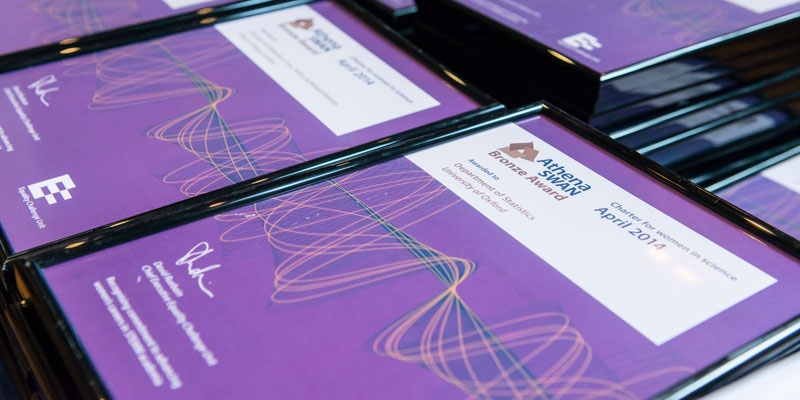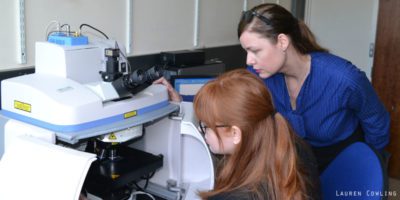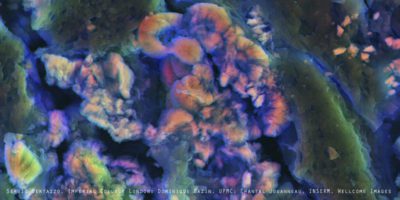Sarah Dickinson leads the strategic development of and oversees all work relating to the delivery of ECU’s equality charter schemes, comprising Athena SWAN, which recognises advancement of gender equality, and the race equality charter mark. Prior to joining the ECU, Sarah worked at the University of Cambridge where she managed the Women in Science Engineering and Technology Initiative (WiSETI), a positive action gender equality project aiming to improve the recruitment, retention and promotion of women in STEMM [science, technology, engineering, maths, medicine].
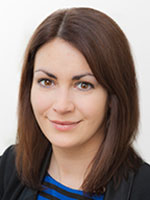
The Athena SWAN Charter celebrates its ten year anniversary on 24th July 2015.
Founded in 2005, the Athena SWAN Charter is a scheme that recognises commitment to advancing women’s careers in STEMM employment in higher education and research
The Athena SWAN Charter is open to any university or publicly funded research institute that is committed to the advancement of the careers of women in STEMM. Members are able to submit for Athena SWAN Charter awards at institution and department level, based on an in-depth self-assessment that is reviewed by a panel drawn from higher education across the UK. Members are supported throughout the process with workshops, guidance and opportunities to share practice.
The Charter, which is managed by the Equality Challenge Unit (ECU), was founded in 2005 with ten founding members. It now has 132 members and 462 award holding departments and institutions.
The success of the Charter stems from the fact that it was set up by academic women in science for academic women in science. Its aims were to level the playing field for academic women in science by getting institutions and departments to conduct a thorough self-assessment of their policies and procedures. This self-assessment had to be led and championed by senior academics and senior management in order to ensure sustainable change and buy in form the top.
Principles (2005-2015)
All Athena SWAN members must sign up to the principles of the Charter:
- To address gender inequalities requires commitment and action from everyone, at all levels of the organisation.
- To tackle the unequal representation of women in science requires changing cultures and attitudes across the organisation.
- The absence of diversity at management and policy-making levels has broad implications which the organisation will examine.
- The high loss rate of women in science is an urgent concern which the organisation will address.
- The system of short-term contracts has particularly negative consequences for the retention and progression of women in science, which the organisation recognises.
- There are both personal and structural obstacles to women making the transition from Ph.D. [Doctor of Philosophy] into a sustainable academic career in science, which require the active consideration of the organisation.
Making progress
There are three levels of awards available, designed to encourage continuous progression and sustainable change. There are awards for the whole institution, and individual departments and faculties can be conferred awards as long as their institution holds at least a bronze award. Award-holders have to re-apply to renew their awards every three years. These renewals also require evidence of progress and the successful completion of earlier action plans.
Bronze award
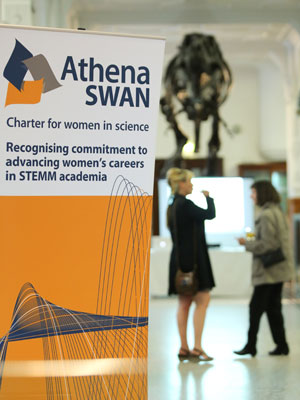
Silver award
A silver award recognises a significant record of activity and achievement by the institution in promoting equality and in addressing challenges across the whole institution. Silver award winners demonstrate that equality is well embedded within the institution or department with strong leadership in promoting the Charter principles.
Gold award
A gold award recognises sustained progression and achievement in promoting gender equality and to address challenges particular to the discipline. A well-established record of activity and achievement in working towards equality in the career progression of women in STEMM should be complemented by data demonstrating continued impact. Gold departments should be beacons of achievement in gender equality and should champion and promote good practice to the wider community.
The requirements for a Gold university award will be announced during the presentation at the tenth anniversary celebration at the end of July.
Charter expansion
The scope and reach of the Charter has expanded at a rapid pace since 2012. There was a massive increase in membership and award submissions in 2012, thanks in part to the decision in July 2011 from Professor Dame Sally Davies, Chief Medical Officer for England to link funding for National Institute Health Research (NIHR) Biomedical Research Centres and Biomedical Research Units to achieving a Silver Athena SWAN award.
The reputation of the Charter has also continued to grow and this has led to the expansion of the Charter. The first expansion was in 2012 when the Royal Society, in response to requests from research institutes, funded a pilot of Athena SWAN to non-higher education institution affiliation research institutes. The pilot was a success and research institutes were officially allowed to join the Charter in April 2014 thanks to funding from the Department of Business Innovation and Skills.
The enthusiasm for the Charter has translated into international action with a pilot expansion of the Charter in Ireland. The expansion was officially launched on 5th February 2015 by Ireland’s Minister for Education, Jan O’Sullivan, at the Department of Education and Skills in Dublin. This event marked the beginning of a three-year pilot, and also provided an opportunity to highlight and celebrate the commitment made by Irish institutions to address gender inequalities and imbalance.
In addition to the expansion to Ireland, ECU are working in partnership with Science in Australia Gender Equity (SAGE) Forum, a new initiative of the Australian Academy of Science to develop Athena SWAN in Australia. A two year pilot is set to commence in August 2015. Professors Nalini Joshi and Brian Schmidt, who are leading the project and are both passionate about meeting the challenges of gender equality.
Finally, in response to feedback from the sector, from May 2015, ECU is excited to welcome to the Charter applications from arts, humanities, social sciences, business and law departments (AHSSBL), and higher education institutions that focus specifically on these areas, in addition to the current science, technology, engineering, mathematics and medicine (STEMM) disciplines, as well as launch the new gold application materials and guidance.
In addition to expanding the Charter to cover AHSSBL, by 2017, all applicants will be signed up to new principles which have been extended to cover professional and support staff as well as trans staff. The new Athena SWAN Charter principles reflect the progressive nature of the Charter. Expectations will change as the sector moves forward in the pursuit of equality. ECU is convinced that this is the right approach and we look forward to seeing institutions rising to the challenge.
https://twitter.com/equalityinhe
https://www.linkedin.com/company/equality-challenge-unit

